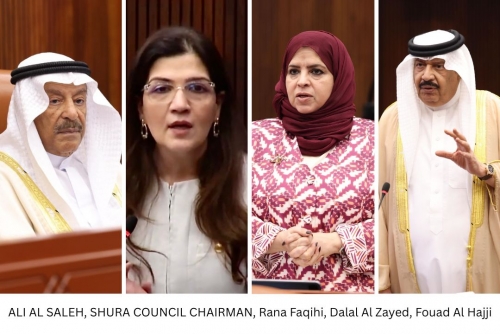Tax strategy eyes BD130m revenue
TDT | Manama
Email: mail@newsofbahrain.com
Shura Council has retrospectively approved a law already in force since January, which imposes a 15 per cent tax on multinational groups operating locally.
The measure is expected to raise BD130 million a year and brings the country into step with global rules on corporate profits. The vote, held yesterday, completes the legislative procedure for Decree-Law No. 11 of 2024, issued by the government as part of urgent fiscal measures.
The law forms part of an international effort to prevent large firms from shifting profits to jurisdictions with little or no tax.
It applies to multinationals with global turnover above €750 million a year.
Thirteen foreign-headquartered multinational groups currently operate in Bahrain and fall within the scope of the tax.
Model rules
Financial committee rapporteur Dr Anwar Al Sada said the tax applies to multinationals based in Bahrain and follows the model rules set by the Organisation for Economic Co-operation and Development.
He said the move ensures large businesses pay where they operate. “This puts all economic activity under the same tax rules,” said Dr Al Sada. “It plugs a gap and puts Bahrain on the map in terms of international tax cooperation.”
Khalid Al Maskati, who chairs the Financial and Economic Affairs Committee, told fellow members the law follows the second of two OECD pillars.
“We’re speaking of firms with reach and clout, this stops profits being parked in places with no tax and no scrutiny,” he said.
First pillar
He added that Bahrain had not signed the first pillar, which targets digital firms selling across borders, but had joined the second, which concerns the minimum rate large groups must pay once they cross a certain threshold.
“The aim is to stop tax revenue from slipping away to countries with no transparency,” said Al Maskati. ‘“By signing the agreement, we retain what is due to us. And with thirteen multinationals on the books, we estimate BD130 million a year.”
Others welcomed the law as a way to bring in income without placing new charges on the public.
“This has a public benefit as well as a financial one,” said Fouad Al Hajji. “It means the state can pay for schemes the public uses.”
Dalal Al Zayed supported the legal footing of the measure and praised the National Bureau for Revenue for drafting its rules.
Questions
She raised questions about how tax evasion cases would be handled in court.
“Will these cases go to the administrative bench, or will there be a separate court to hear them?” she asked. She also sought clarity on when the right to prosecute such cases runs out.
“The wording says 10 years from the offence, but shouldn’t it be ten years from when the act is uncovered?”
She also pointed out that parts of the law refer back to 2023, despite it only coming into force in January 2025.
Backdated calculations
“Does that mean there will be backdated calculations?” she asked.
Responding during the session, Rana Faqihi, chief executive of the National Bureau for Revenue, confirmed that the court in charge of tax evasion cases is the Administrative Court.
“I just wanted to respond to a few of the queries,” she said. “As for what was raised by member Dalal Al Zayed regarding the court handling these matters, the competent authority under the current system is the Administrative Court.”
Related Posts

